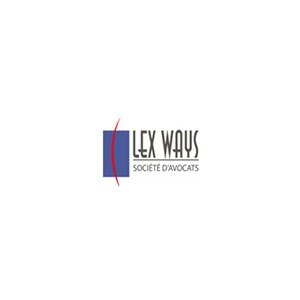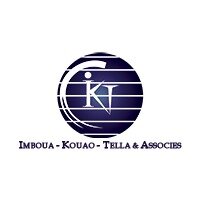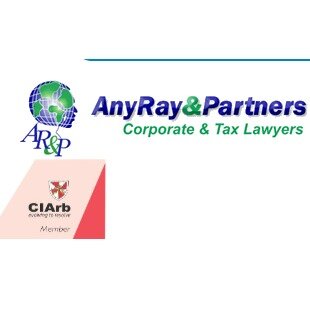Best Structured Finance Lawyers in Cocody
Share your needs with us, get contacted by law firms.
Free. Takes 2 min.
List of the best lawyers in Cocody, Ivory Coast
About Structured Finance Law in Cocody, Ivory Coast
Structured Finance is an advanced area of finance that involves complex financial transactions, typically designed to manage risk and optimize funding. In Cocody, a commune within Abidjan, Ivory Coast, structured finance is becoming more prevalent due to the growth of real estate, infrastructure, and trade sectors. This field often includes securitizations, syndications, project finance, asset-backed securities, and other custom financial solutions. Structured Finance law governs how these transactions are designed, documented, regulated, and enforced, ensuring both compliance and financial safety for involved parties.
Why You May Need a Lawyer
Legal expertise is crucial when dealing with structured finance arrangements due to their complexity and potential risks. Here are common situations where you may need a structured finance lawyer in Cocody, Ivory Coast:
- Advising on the best legal framework for structuring or restructuring complex financial deals - Drafting, reviewing, or negotiating loan agreements, security documents, or transaction structures - Navigating local regulations and compliance with financial authorities in Ivory Coast - Addressing disputes arising from breaches of contract, enforcement actions, or default scenarios - Assisting with regulatory approvals and due diligence - Advising financial institutions, corporations, or investors on risk management and restructuring solutions
Local Laws Overview
Structured finance in Cocody, and broadly in Ivory Coast, is governed by a combination of local statutes, OHADA (Organization for the Harmonization of Business Law in Africa) uniform acts, and specific regulations by local authorities like the Central Bank of West African States (BCEAO) and the Regional Stock Exchange (BRVM). Some key aspects include:
- The uniform act on secured transactions under OHADA, governing the creation and perfection of security interests - Regulations by BCEAO on banking practices, lending, and securitization - Requirements for documentation, registration, and disclosure in complex financing arrangements - Anti-money laundering (AML) and counterterrorism financing (CTF) compliance - Rules set by the BRVM for capital markets transactions - Tax laws pertaining to structured finance products and their investors
Understanding these regulations is essential to ensure that financial agreements are enforceable and compliant within Cocody and the broader Ivorian jurisdiction.
Frequently Asked Questions
What is structured finance?
Structured finance refers to highly involved financial arrangements, often including pooled assets and custom transactions, to address unique financing needs or risk profiles. Examples include securitizations, syndicated loans, and project finance deals.
Who regulates structured finance activities in Cocody, Ivory Coast?
Key regulators include the BCEAO, the Ministry of Economy and Finance, and the BRVM. For legal structuring, the OHADA uniform acts also apply.
Are foreign investors allowed to participate in structured finance deals in Cocody?
Yes, foreign investors can participate, but they must comply with local laws regarding foreign exchange, investment regulations, and due diligence processes.
What types of assets can be used in asset-backed securities in Ivory Coast?
Common assets include real estate, trade receivables, equipment leases, and infrastructure project revenues, subject to valuation and regulatory approval.
How are disputes in structured finance transactions resolved?
Most disputes are settled through court litigation or arbitration. The Uniform Act on Arbitration under OHADA governs many such processes.
What are the tax implications of structured finance?
Tax regulations may apply to interest income, capital gains, and the structure itself, varying depending on the transaction. Consulting a tax specialist is highly recommended.
How important is due diligence in structured finance?
Due diligence is crucial to assess the legal, financial, and regulatory risks involved. It validates assets, parties, and compliance with Ivorian regulations.
Can securitization structures be promoted in Cocody?
Yes, provided they conform to the banking and financial regulations, and required approvals are obtained from the relevant authorities.
What risks are associated with structured finance?
Risks include legal enforceability, counterparty risk, market risk, regulatory changes, and asset quality deterioration.
How do I choose a structured finance lawyer in Cocody?
Seek a lawyer with expertise in finance law, local market knowledge, and experience in handling similar complex transactions in Ivory Coast.
Additional Resources
- Central Bank of West African States (BCEAO): For banking and financial sector regulations - Ministry of Economy and Finance, Ivory Coast: For investment laws and approvals - BRVM (Bourse Régionale des Valeurs Mobilières): For guidance on capital market transactions - OHADA: For business and secured transaction laws - Ivory Coast Bar Association: To find qualified legal professionals specializing in finance law
Next Steps
If you require legal assistance in structured finance in Cocody, start by identifying your specific legal needs, whether for advice, transaction structuring, drafting agreements, or dispute resolution. Contact a lawyer or law firm with demonstrated expertise in structured finance and knowledge of local laws. Prepare all relevant documentation on your intended transaction and be ready to discuss your objectives and concerns. Consulting with professionals early can help you navigate regulatory requirements, minimize legal risks, and ensure the success of your financial arrangements.
Lawzana helps you find the best lawyers and law firms in Cocody through a curated and pre-screened list of qualified legal professionals. Our platform offers rankings and detailed profiles of attorneys and law firms, allowing you to compare based on practice areas, including Structured Finance, experience, and client feedback.
Each profile includes a description of the firm's areas of practice, client reviews, team members and partners, year of establishment, spoken languages, office locations, contact information, social media presence, and any published articles or resources. Most firms on our platform speak English and are experienced in both local and international legal matters.
Get a quote from top-rated law firms in Cocody, Ivory Coast — quickly, securely, and without unnecessary hassle.
Disclaimer:
The information provided on this page is for general informational purposes only and does not constitute legal advice. While we strive to ensure the accuracy and relevance of the content, legal information may change over time, and interpretations of the law can vary. You should always consult with a qualified legal professional for advice specific to your situation.
We disclaim all liability for actions taken or not taken based on the content of this page. If you believe any information is incorrect or outdated, please contact us, and we will review and update it where appropriate.












